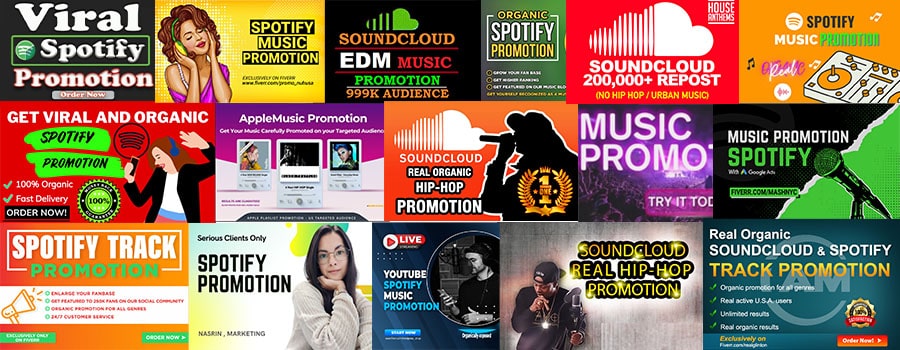
Navigating the music business can be very tricky, especially for newer musicians. It’s hard to know who to trust when there are many people looking to exploit and take advantage of impressionable artists who will try anything to make it in this business.
The music business, like other entertainment industries, is filled with scammers. It is such a lucrative career path that many have set up operations to take advantage of these artists to make money. The area you’ll most likely encounter scammers in the music industry is in music promotion. After all, one of the biggest struggles artists have is getting their music heard and gaining exposure to build a fanbase.
There are a lot of music promotion companies out there, but not all will serve your best interests. This blog will help you make better decisions when looking for ways to promote your music while avoiding potential scams. It’s already challenging for musicians not making enough money from music so the last thing you want to do is spend on something that doesn’t work.
Why scammers will continue to succeed…
Before diving into the details, it’s important to address the root of the issue. The real underlying problem that allows music promotion scams to continue is this:
This is about to piss off some ppl but it needs to be said.
The reason why there are so many music industry scams is cuz scammers know new artists n producers are gullible enough to think they can pay their way to success.
YOU CANT. Make dope music n content, n SHARE it.
— KATO ON THE TRACK (@KatoProducer) July 1, 2020
The big 3 reasons why scammers continue to do what they do is:
1. A lot of artists lack music business education and hands-on experience with their careers.
2. Stuck in the belief/mindset that you can pay for shortcuts to success.
3. Scammers know your pain points well.
Being aware of these 3 things will make it harder for scammers to take advantage of you.
Lack of Education and Experience
In this digital age, anyone can upload a song to SoundCloud or YouTube and say they have a music career. After all, getting your music on digital service providers like Spotify can cost as little as $20 a month. Because there are no formal requirements to start a career in music, it’s easy to overlook the importance of artist development. This leaves aspiring musicians very susceptible for scammers to prey on their ignorance.
The key aspects to building a music career are in learning, experiencing and doing. The music business has so many facets and components that most starting out are left in the dark. Even on a societal level, ignorance and a lack of education make you a target for scams. Scammers love to prey on naive people. It’s nothing to be ashamed of either, as happens to the best of us.
When you don’t know any better, it’s easy to think that you can just pay some random music promotion service to gain fans. Unfortunately, marketing and promotion isn’t just about putting your music on playlists and blogs.
I’m always a big advocate for doing it yourself first so you can get hands-on experience. This way you know what to look for if you do want to find someone to do music promo for you. You really have to accept that no matter how talented you are, you need to dedicate time to educate yourself about the music business and how things work. Reading blogs from websites like mine is a great start to learn the different aspects of the business.
Lack of Patience (Shortcut Mentality)
A lot of aspiring and emerging musicians do not realize that it takes a lot of time to develop into a professional artist. It’s easy to look at popular artists who blow up seemingly overnight from a viral video and think that’s the reality and not the exception.
It is situations and stories like this we see that reinforce this shortcut mentality. When you have artists who really want something and don’t want to put in the time and work, they focus on paths of least resistance. This lack of patience drives this need to look for shortcuts and hacks for accelerated success. Artists feel this social pressure to “fake it ‘til you make it” and focusing on vanity over substance and relationship building. That’s not how success works out for most.
You can work smarter, but there are no shortcuts to success. No matter what anyone says or tries to sell you. Anything that may seem like a shortcut will have some negative repercussions that will set you back.
Developing into a musician who has the talent, skills, knowledge and experience to be professional takes time. Music promotion can only help you so much if your music and brand isn’t ready. This is why I emphasize playing the long game and moving away from a shortcut mentality.
Scammers Know Your Pain Points
The biggest pain point or problem emerging musicians often have is getting more people to listen to their music and building a fan base.
Scammers know your pain points or what you struggle with as an artist, so they do their best to exploit it for profit. They know the right things to say to get your attention and ultimately get you to pay for their affordable “promotion” packages. In the world of marketing, it’s a common tactic to use certain psychological triggers that revolve around your pain points. This is done to get your attention, show that they understand your problem so you ultimately decide to take action with their services.
They show you pictures of the most popular Spotify editorial playlists with millions of followers and throw them around the word “guarantee”.
After all, a frustrated and desperate artist tries anything, even if it goes against their better judgment.
Common Types of Promotion Scams and How To Spot Them
When it comes to music promotion, there are scams you should be aware of. When I refer to something as a “scam,” it doesn’t always mean they’ll take your money and ghost you. These music promotion services can look and operate like a real business with what looks like, at first glance, an authentic online presence and a large following. They’ll know all the right things to say to catch your attention.
However, upon closer examination, it’s all fake and their efforts won’t actually yield any results. In some cases, you may not even realize it’s a scam. Paying for these services will make you feel you’ve accomplished something, but it won’t benefit your career any real way.
Music promotion scams are everywhere, but here are where you’ll likely encounter them:
• Social Media (Instagram, YouTube, SoundCloud)
• Random Cold Emails
• Websites from Google Searches
• Freelancer Marketplaces (Fiverr)
Disclaimer: To be clear, not all music promotion companies are scams. The following companies and services I reference are what I judge to be scams. I have never used any of these services for myself or any clients, although I know someone who has. I share my skepticism of these types of “music promotion” services based on my experience in the online marketing space. I bring this up because it’s possible some of these people behind these services aren’t intentionally trying to scam musicians but may not realize what they offer isn’t actually effective. I debated referencing actual companies and services, but I feel it’s important you actually see real examples of what I’d caution you about.
1. Fake Followers and Streams
Let’s talk about this first because it is so prevalent. So many artists put such a high value on vanity metrics like social media followers and music streams. Instead of growing it organically through good content and strategic collaborations, musicians resort to faking it.
Don’t trust any service that says they can give you real followers and music streams fast. 99.99% of the time, it’s all going to be fake. Real growth is always gradual so any sharp spike in your followers is a sign of bots at play. No matter how much they say and try to convince you that they are real followers and no bots, it’s a scam. No matter how enticing and cheap it is to do, don’t do it! If you need more convincing, here are 4 reasons why you want to avoid fake fans.
There are services out there that will offer to “grow” your following organically or manually, which is more gradual. This is not necessarily a scam, but you have to pay attention to their methods. Even if they aren’t using bots to follow your account, they can use bots to “grow” your following using tactics like follow/unfollow on Instagram. It’s not against terms of service, but it’s a sleazy way of getting followers, in my opinion.
Avoiding these fake follower services is easy but be careful with any marketing agencies and labels you work with too. You could be working with real people to promote your music, but it doesn’t stop them from buying fake followers and streams to give you the impression that they are doing the job you pay them for.
The best way to avoid this type of scam is to know how to increase your followers naturally. Here are 3 general ways:
- Doing it organically by posting great content using proper tags.
- Run targeted ad campaigns (Instagram, Facebook, YouTube) on the native platform to expand your reach to specific audiences.
- As a byproduct of some other form of promotion or exposure. For example, if someone sees you perform live. Or if a big-name artist or brand talks about you and tags your handle in their Instagram Stories.
Buying fake followers is one thing, but there are services out there that will promise you more song streams to boost up your numbers on Spotify. Unlike having fake fans, this can have more serious repercussions if you’re caught. You don’t want to have to deal with having your music removed and your account terminated from the platform.
Like I touched on earlier, the reason why people succumb to buying fake followers and streams is the lack of patience and having the wrong mindset. You may think it’s harmless to buy a couple of thousand followers or song streams to create a positive impression on your social profiles, just don’t do it!
2. Social Media Promotion Scams
There are “services” out there that will offer various promotion packages to feature you on their social media accounts. They’ll offer a wide range of different placements to get you exposure like an Instagram Story or in a newsfeed post.
At first glance of their profile, you’ll see an impressive number of followers. The account will feature a bunch of other emerging artists, like yourself, to give you social proof that others have done it too. The name of the account may be associated with some famous artist or band to give you a sense of familiarity even though they have no connection to them.
However, once you dig into their account, you’ll see a lot of red flags. The problem is most of their followers are bots so that exposure on their social media account won’t do you any good.
Not all these types of social media promotion accounts are this obvious as the ones I show below. Here is a list of things to watch for:
- Check their followers. If they have an unusually high number of followers for a music promotion “company” (really, a million followers?), chances are it’s fake. Look at who the followers are. Do you see a lot of accounts with no profile pictures and posts, but follow a bunch of other people? Do you see a pattern of foreign languages used in the accounts? These are telling signs that the followers are fake so you’d be paying to promote your music to bots.
- What’s their post engagement like? If they have a million followers, but all their promotion posts result in 100 likes and 5 comments (most of which are spam), you should be wary. For video posts, those views can be faked so don’t base it off that either.
- Do they have a website? Having a website does not guarantee that it’s a legit company, but not having one should raise some suspicion because they’re likely trying to remain more anonymous.
- Are they just “promoting” to one broad general audience? If it looks like the account isn’t being selective with the type of artists they promote, regardless of musical style or genre, there’s a good chance it’s a scam. A scammer wants to make as much money as possible so they’re going to promote anyone who pays them. Remember that good marketing should be targeted and any promotion company that doesn’t acknowledge that is not a good company or a scam.
- They are pitching their services to you. Whether it’s a comment on a post or direct message, scammers are likely to approach you to buy their “promo” packages. This can be easily automated with the use of bots so you’ll be greeted with very generic messages.
Here are some examples of scam accounts you want to avoid:
If you have to pay someone to be featured on their social media account, there’s a high chance that it’s a scam. As you’ll see, this is a common thread with the other scams.
Although I referenced Instagram, this type of scam can also take place on other platforms too like SoundCloud and YouTube.
Here’s an example of a trickier scam that involves the use of big-name artist accounts. In a nutshell, there’s a music promotion company that sold placements for a “mixtape” hosted on SoundCloud. They somehow got access to these big-name rapper accounts to lure these emerging artists to buy a slot on this playlist.
Over the past few months, a company named DaBlock365 has been working with several notable rap artists — including Fat Joe, Benny The Butcher, Jadakiss, and Dave East, among others — offering indie rappers "mixtape placements" for between $500 and $650 per slot. A thread…
— Z (@djboothEIC) June 29, 2020
I won’t get into all the details, but you can read and learn more about this elaborate scam here.
3. Music Blog Scams
If a blog requires you to pay to guarantee a feature on their blog, it’s likely a scam. Take a step back and think about it from a reader or visitor perspective. Why would a music fan read this music blog? To learn of new songs and artists from a trusted source, right?
If you were a genuine music fan, would you really take the recommendations from a source that charges artists to be on their website? Wouldn’t this raise suspicion? Like, is this artist being talked about because their music is actually good or because the blog placement was being paid for? It’s hard to trust someone when money is a factor.
There are plenty of legitimate music blogs out there that you can submit your music to get exposure for free. When it comes to evaluating what is real or a scam, here are some things to consider:
- How much traffic does the music blog get? When it comes to music blogs, it’s hard to know how much traffic they get. One clue is to look at their social media presence to see how many followers they have and how much engagement their posts get. If they don’t have social media, I would be very skeptical because they may be trying to hide any indication of social proof. You can also use search engine tools like Ubersuggest to estimate monthly traffic.
- Do they charge you to get guaranteed coverage on their blog? As I touched on earlier, paying to get a review, interview or feature on a blog is a red flag. There is an exception, although it’s without some criticism. There’s a website service called SubmitHub that allows you to easily submit to various music blogs and playlists for feedback and placement. Their goal was to address the massive number of submissions music blogs receive. There is a difference though. You do pay a small fee (a couple of dollars) to submit to each blog and guarantee a response or song feedback, but there’s no guarantee that they’ll cover you or add you to a playlist. The cost is to cover the time of the blogger to listen to your song.
- Is the music blogger in another country that’s commonly associated with scams? Typically, you see people in countries like India and Bangladesh run these types of scams and are known to run bot farms. There are other places too, not to single them out, but those are what I’ve noticed more personally.
- Is the blog generating high amounts of traffic not related to showcasing and promoting music? For example, a website could write about music news, music equipment reviews or music business advice to drive traffic to their website. Or they can post about the latest news on popular artists that can get people’s attention searching on Google. It’s search engine optimized so that it ranks higher up when people search certain keywords. They do this to fool you into thinking their blog gets a lot of traffic, but they charge you to feature you to visitors that have landed there for something completely different. Getting a feature on a blog like this isn’t going to be effective because most of the traffic generated to the website is there to learn about the best recording software.
- Are there real people running the blog? I’ve actually encountered a music blog that was pretending to be an American musician, but the domain name and website was hosted in India. When you research this person’s name, they’re not tied to any real person and it’s always the same generic photo used across all platforms.
Here’s an example of a music blog you want to avoid. They claim to get 100,000 monthly visitors or 3,000 monthly readers.
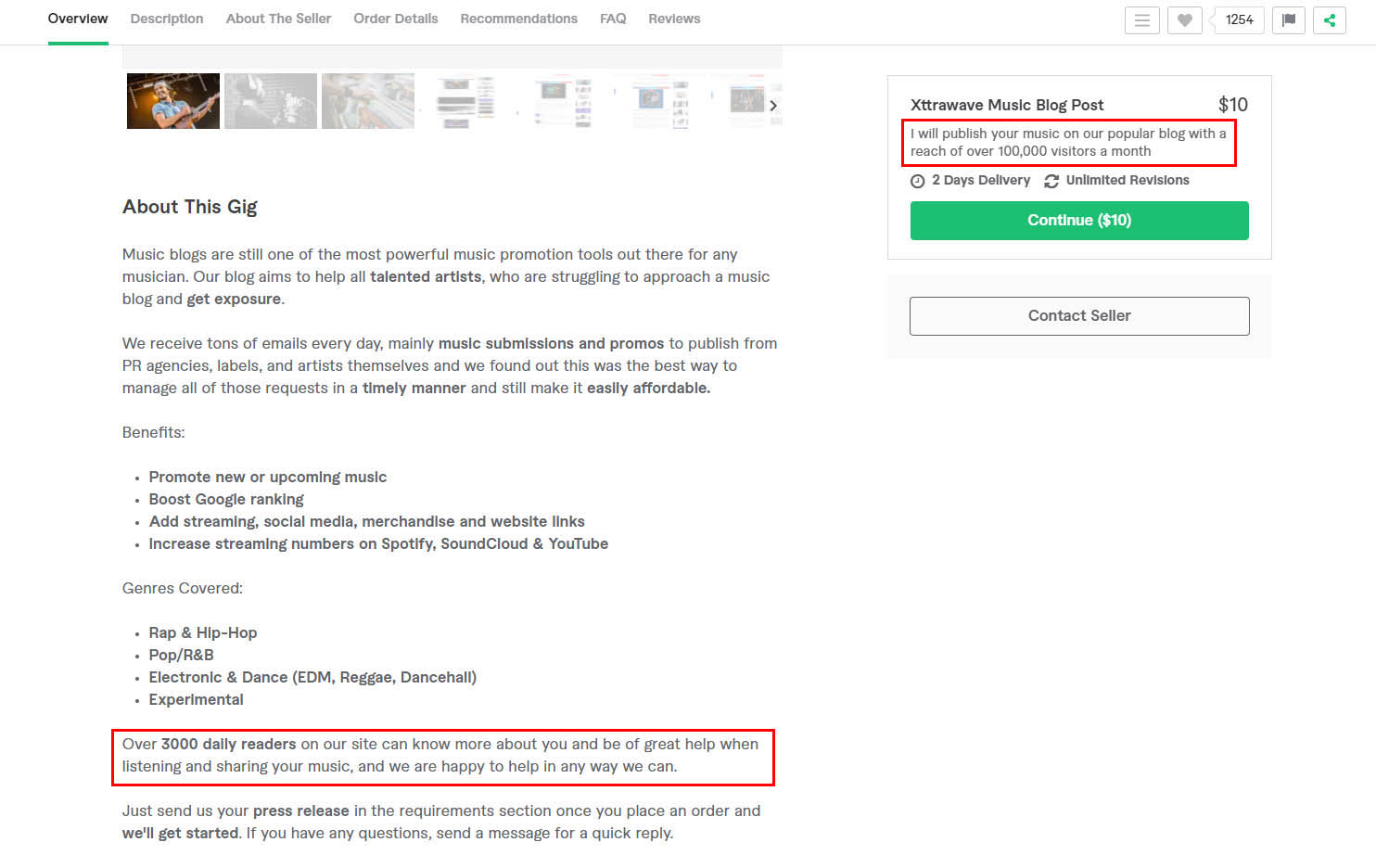
Now if you look up how much traffic they get, it’s a good amount. As you can see with Ubersuggest, they get about 57,000 visitors a month.
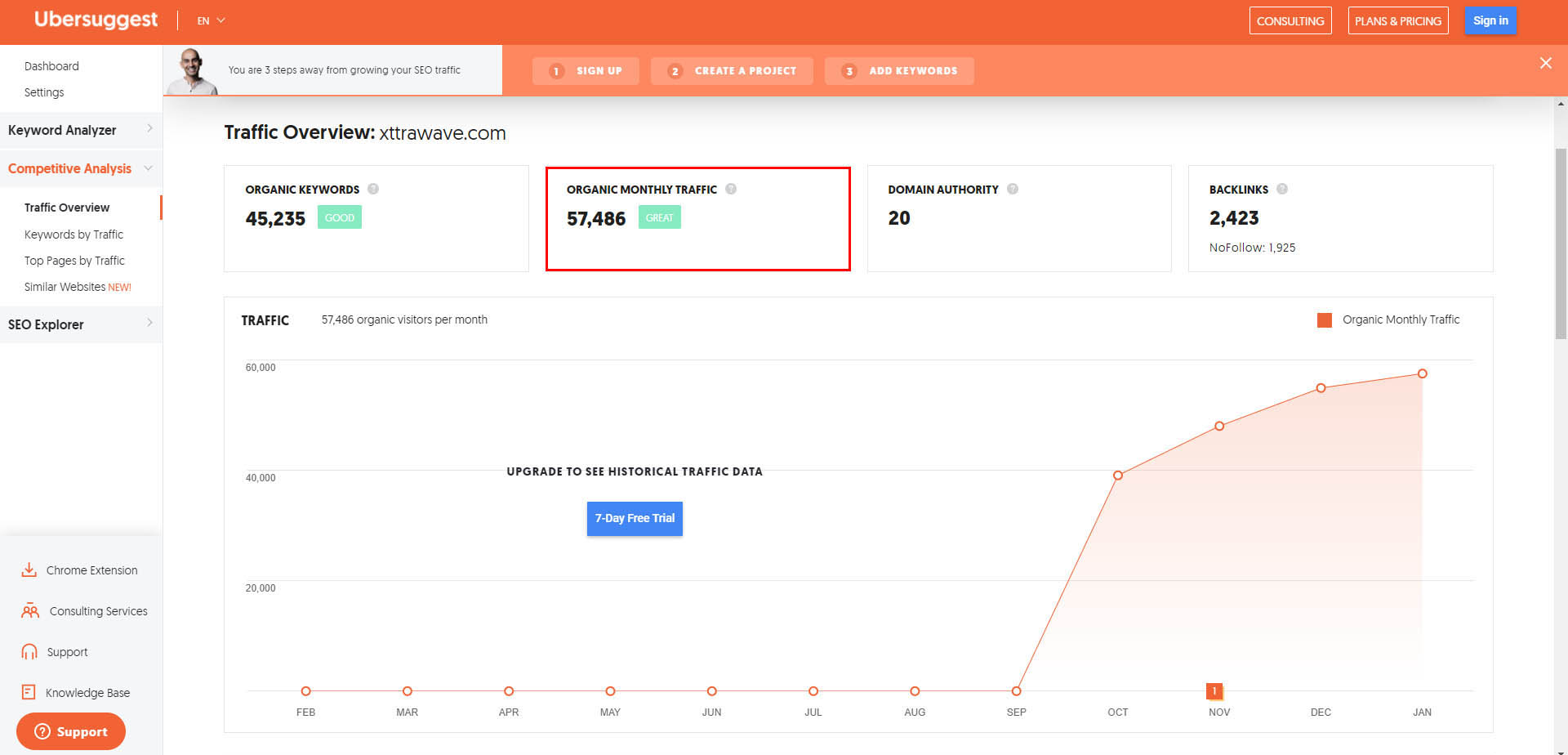
But you have to ask yourself, how did they get that much traffic and do visitors actually go to the website to learn about new music and artists that paid to be featured? The answer is no. The blog has generated a lot of traffic through search engine optimization (SEO) for a bunch of other music-related content from music production, gear and best artist lists.
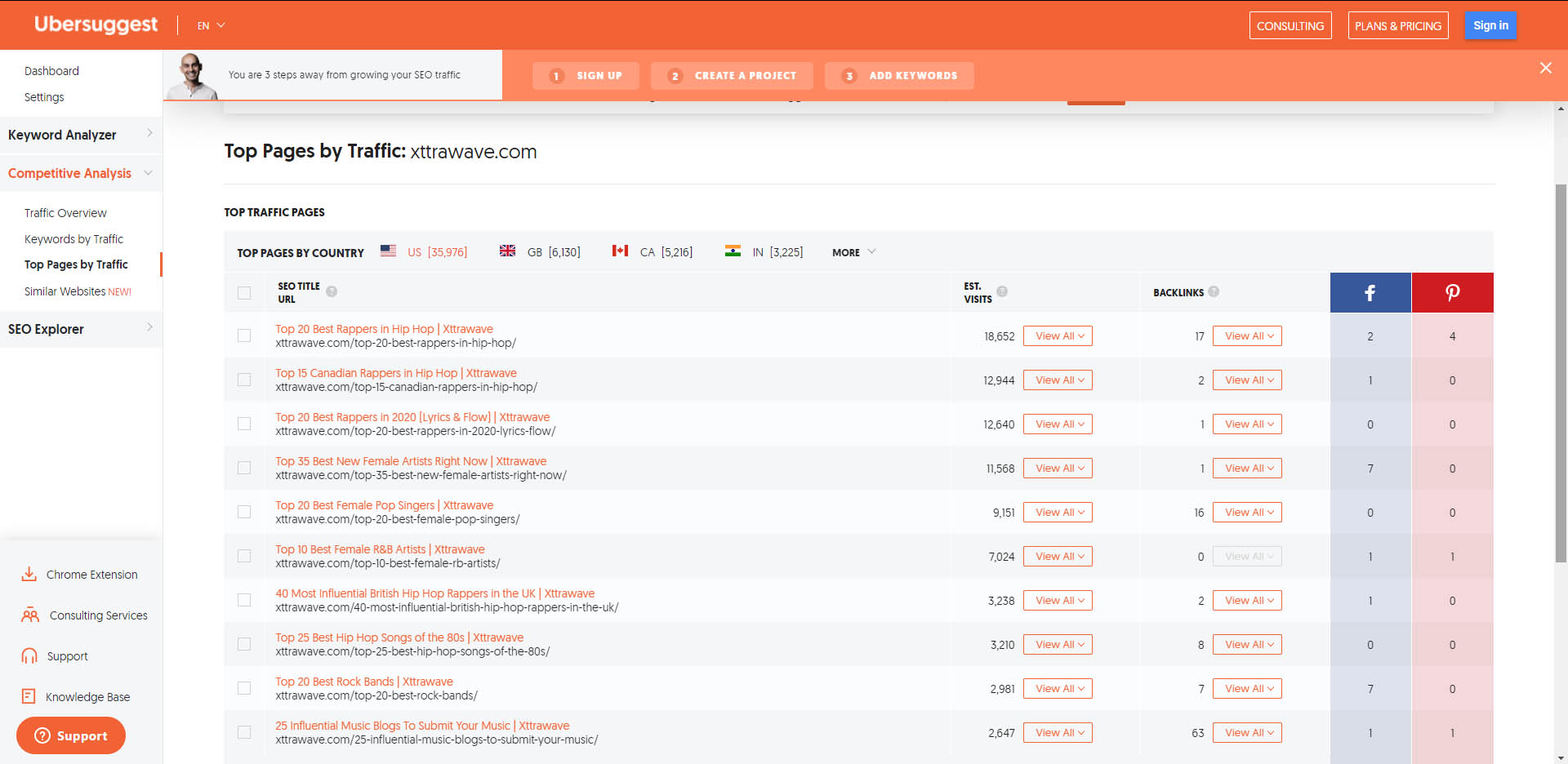
If you look at the top pages, you can see the top artist lists blogs drive the majority of their traffic. They can sell you on getting you more exposure from the high traffic their site gets, but do these visitors actually spend time to learn about these artists? Maybe, but I have my doubts.
Now, this person seems real and actually gets good reviews on Fiverr from musicians who I have used this promo service. Again, this makes it tricky to know who is legit, but the average musician may not be aware of these subtle tactics.
When someone is curating artists to be showcased, it should be based on what the blogger authentically likes and advocates for, not because they were paid to.
4. Playlist Placement Scams
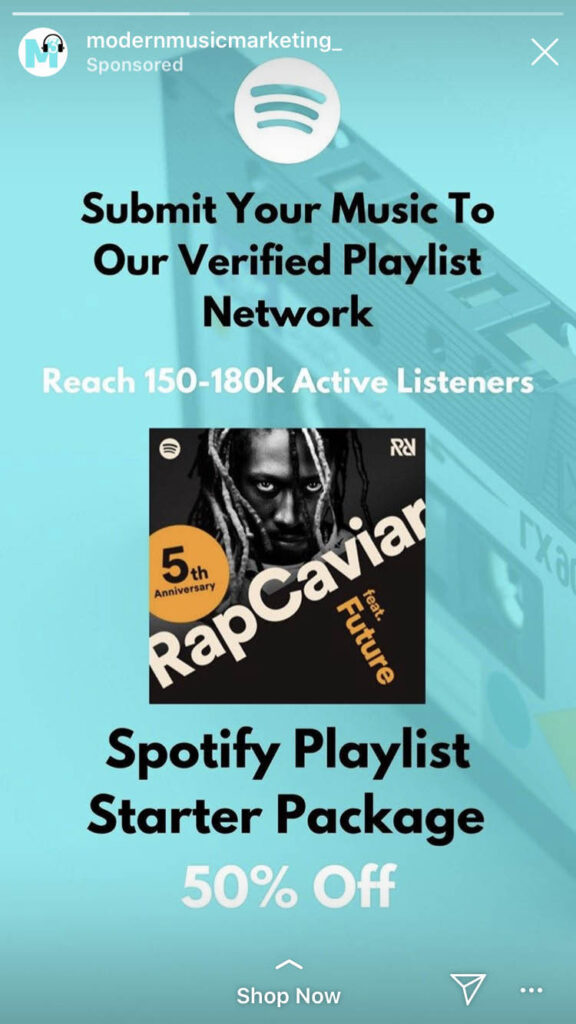
Similar to the first two scams involving social media and music blog placements, the playlist scam involves paying to get on certain user-generated playlists. The highlight is often “real organic playlist followers and listens.”
These services will often guarantee you a spot in their highly followed playlists that will claim to get you more exposure and generate more listens to your songs. However, you’re either not going to get any listens because the playlist followers are fake and/or you’ll get listens from a bunch of bots.
Having bots listening to your music seems harmless, but it can mess up your algorithmic associations on the platform. Let me explain.
Bots are programmed to generate streams. The songs a bot will listen to can be all over the map in terms of music styles and genres. In other words, it may follow an unnatural listening pattern.
As I’ve written about before, platforms like Spotify keep track of user listening patterns to help make recommendations to others. Their algorithm will have a tougher time recommending your music to real potential users when your songs are mixed up on playlists with a bunch of random songs and bots listening to all types of music.
Another playlist scam to look out for is one that promises to get you on bigger Spotify editorial playlists, which are curated by Spotify’s team. You can’t pay your way on to these playlists so anyone saying that they can is trying to scam you. In case you didn’t know, you can submit your unreleased song to be considered on Spotify’s editorial playlist for free.
It’s very important to note that Spotify’s terms of service states that you’re not allowed to charge or pay to get on a Spotify playlist. If you’re caught, it can result in your songs being removed or even your entire catalog banned.
Here are things to look for in playlist scams:
Are they charging to be added to a playlist? There’s a difference between paying for someone to pitch your songs to be considered on a playlist and paying someone to guarantee a spot on a playlist. Just because they don’t guarantee you playlist placement doesn’t mean it can’t be a scam either. Be aware that there are legit playlisting services out there that will help pitch your song to real music curators. The money you pay these companies is for their time and access to the relationships they’ve built with these playlisters. However, the company isn’t allowed to pay anyone to get your song on a playlist because they don’t want to violate Spotify terms of service.
Can you see the playlist beforehand? This can help you decide the quality of the playlist. Is it branded with a nice cover photo? Are there thousands of songs on the playlist? Do they host multiple playlists with roughly the same amount of followers? Are the playlists well curated? If the songs are just a random mix of styles and genres, you should be skeptical. Worst yet, if the playlist has hundreds or even thousands of songs, is anyone actually going to get to it?
Are the followers on their playlists real? A playlist is only good if there are real followers who actually listen to it. Here’s a good guide on how to spot a fake Spotify playlist.
Here’s a great example of what I would consider a scam.
- There are no links to their social media accounts. They actually have a Facebook page, but it’s full of the same self-promotion for their “marketing” services.
- There is no human presence anywhere. It’s all stock photos or generic videos that keep it very anonymous.
- Their “refund policy” is completely unrelated to what they’re selling.
- They claim to be based in Los Angeles, California. The address found in their privacy policy for their office is: 14 Circle Drive, Millington, NJ 07946 United States. The address listed to mail back refunds is 1200 Brickell Ave, Miami FL 33131, which is for a virtual office space. The strange thing is don’t sell physical products. How can you trust all these inconsistencies?
- Their testimonials are from big name artists, like RUEL, Dermot Kennedy and ROLE MODEL, so it doesn’t seem real. For such an anonymous “company,” it’s very hard to believe them.
- There is an option to schedule a call, but all these other signs make me very suspicious and skeptical of this service.
If you want to know how to leverage Spotify playlists to improve discoverability for your music, check out my Spotify playlist guide.
5. Publicist Scam
The reason why you would need a publicist is to get coverage on various media outlets they have an established relationship with. If you have an interesting story or angle that is newsworthy to a publication, they can use their connections to pitch you to get a story, song/video premiere, interview or review.
The problem is most artists aren’t ready for a publicist, especially newer, emerging artists. You often need to have established a recognized brand or have done something extraordinary that makes it worth covering to a mainstream audience. A publicist can’t just pitch anyone that can pay them, otherwise, it can jeopardize their reputation.
If you get approached by a publicist saying they want to work with you, here are some basic things to keep in mind to avoid getting scammed:
- If someone charges you to get exposure on big music publications or media outlets (Complex, Rolling Stones, Variety, Pitchfork, Billboard), you need to be very skeptical. If they guarantee it, then it’s likely a scam.
- Hiring a real publicist can be very expensive. A good, experienced one can easily be thousands of dollars a month. Be wary if you get quoted a price that seems too good to be true.
- Are you actually at a point in your career that you should pay for one? You have to be honest with yourself if you’re truly ready to pay a music publicist.
Summary – What to look out for in potential scams?
To wrap things up, I wanted to cover the key points of what you should take away when you’re seeking help with music promotion:
- They aren’t selective and will work with anyone who pays them. If you’re a scammer, your primary goal is to make money off naive people. This means removing any roadblocks like being selective with who they work with. The fact is, not everyone is ready for music promotion. A legitimate company shouldn’t work with anyone that pays them. If they don’t have some assessment process when it comes to who they decide to work with, you may want to be careful. I know that I wouldn’t want to work with an artist who isn’t ready because the campaign will more likely fail and that will look bad on me. Since the business model of these companies is based on profiting from each request, they don’t care how good the song is or if your branding is strong. They just want your money.
- Be careful of ‘one size fits all’ approach or cookie-cutter promotion. Again, scammers aren’t really trying to help with the effectiveness of their promotion. They want to maximize profits with minimal work so they want to stay away from customization. Every artist is different so you need someone who can cater to your specific needs. You want to know that they’re being more strategic with how they’re promoting you.
- Are they personalizing their messages in their pitches to you? Now in most cases, I would never trust a cold email or direct message from some random “music promo” service. But if a music promo company or service is approaching you, are they personalizing their message? Do they use your name and show that they’ve taken the time to learn about you? Chances are, they’re not and that’s how you can tell they’re scammers. It’s not difficult to copy/paste the same message to everyone, hoping that someone takes the bait. You can program bots to do this.
- They make guarantees for specific results. Making big promises is a red flag for a scam. It’s hard to guarantee good results with music promotion so be very skeptical when you hear lofty claims.
- If you have to pay to get on a blog feature, playlist, mixtape or social media account, be very skeptical. This is known as payola. In my opinion, this type of exposure should not be paid for. If you’re being featured somewhere, it should be because your music is good or you’re doing something right as an artist. Once you introduce money into the equation, it loses integrity.
- Are the prices unbelievably cheap? It’s not always going to be the case, but a very telling sign is the asking price is very inexpensive. I’m talking like between $5 – $100 dollars for their service. For me personally, I would not do any type of music promotion for any artist for less than $500 because I understand how much time and work goes into planning and executing a proper music marketing campaign. If prices are that cheap, you have to think about how much work they are really doing for you. Oftentimes, you’re paying for access to their “followers” but are they actually real people? On the flip side, some scammers will charge a lot more money because we associate higher costs with higher quality. You might think you’re getting better service because you’re paying more, but it’s a trick. Be aware of this pricing psychology.
- Where are they based? Usually, scammers who use bots in some way or run scam-like operations reside in other non-Western countries, like India, South-East Asia, Russia and parts of Africa. This is not something that is going to be promoted or made public, but they may slip up and reveal this in other ways.
- Are they real people? Is there an about page where you can read about the person or see photos of the team behind the service? Of course, this can be faked to a degree as well, but I notice most scams websites I’ve come across don’t even bother. Remember, anonymity is a sign to be suspicious about. Although I don’t do music promotion as a public service, I have an about page that shows I’m a real person.
- Do your research and play detective. Look up the name of the company or service on Google. Find out who is behind it and look up to see if their identity is real. There is just so much that can be faked online, you need to dig in as much as you can before paying anyone over the internet.
- How is the promotion actually done? Is it just posting something on a website or social media account? Is it an email blast to a large subscriber base? Or is it done with legitimate paid ads on their respective platform? This is very important that they are transparent about what they are doing and their methods.
- Is their following legit? For social media accounts, see if they have a website or do they purely operate on social media which could be a sign. Check their followers and see if they look legit. It’s pretty easy to tell when they have accounts with nothing posted and no profile pics. Accounts with very few followers look random.
Conclusion
Music marketing isn’t easy, and it can be frustrating when it feels like no one is listening to your music. Although you do need good music and video content, you also need to have good branding to go with your promotional efforts.
You can spend a bunch of money to get exposure, but if your branding isn’t there, it’s not going to stick. Your brand needs to be memorable and draw people in. This is why I emphasize brand development for artists as a fundamental step towards a professional music career.
Not all artists are ready to be promoted or take the next step. This doesn’t mean you shouldn’t promote your music, but don’t resort to questionable scam-like promo services taking advantage of your hopes and dreams. There are plenty of legit ways to promote your music. But even legit marketing efforts that you’ll spend money on aren’t going to guarantee you any level of success, especially overnight as one may hope.
I only covered the scams related to music promotion, but there’s a lot of scams in the music business. Be skeptical and cautious out there. Do your research! It’s cliché, but if it’s too good to be true, it’s probably a scam.
Follow Up: A common question I get from people after reading this blog is, “what are legit music promotional companies out there that I try?” Honestly, I don’t know of any because I’m the one that handles the marketing and promotion for the artists I work with. I’ve never had to outsource that type of work to others so I can’t recommend any one. However, I highly encourage you to learn how to do it yourself first before you look for someone to do it for you.
I want to make it clear though that I am NOT a marketing and promotional company that openly takes in any clients. But if you want pay for a consultation with me first and try to work with me, please refer to this page here.



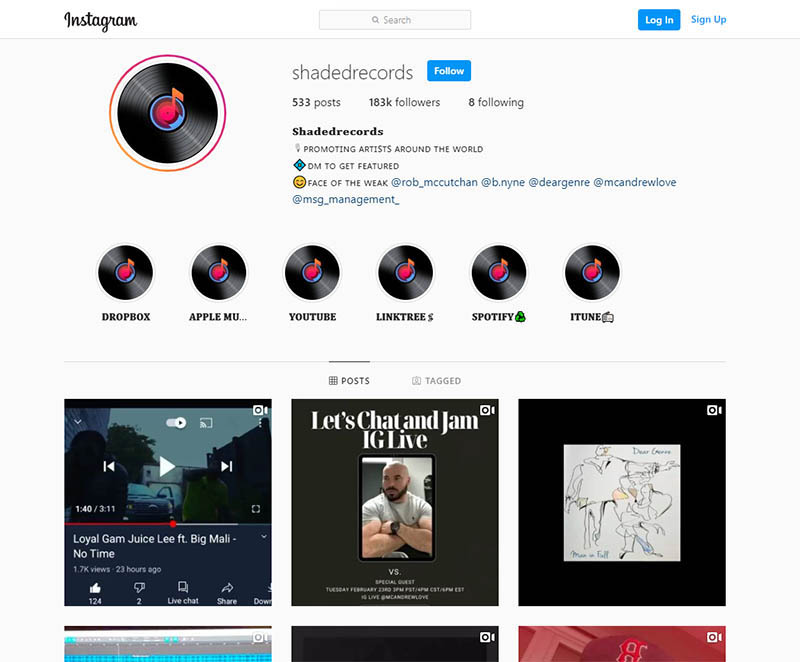
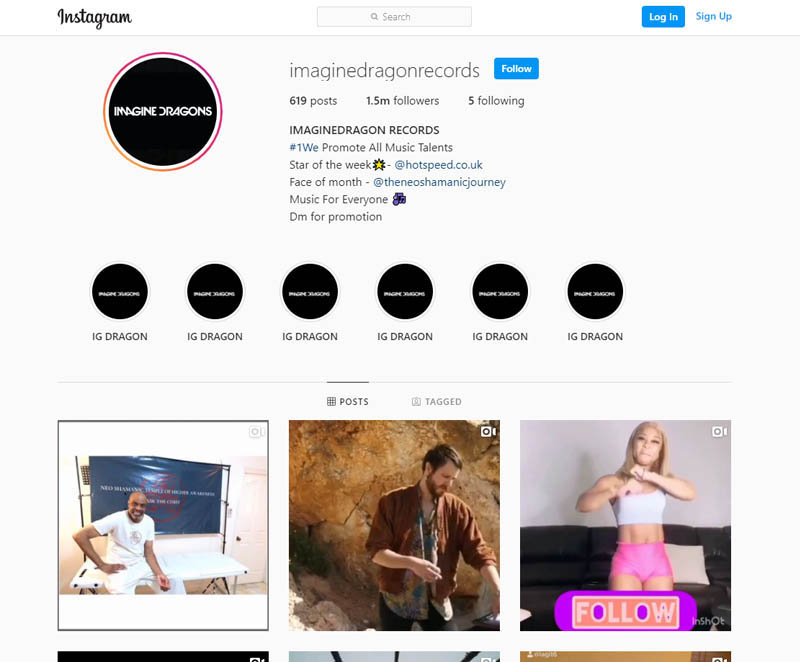
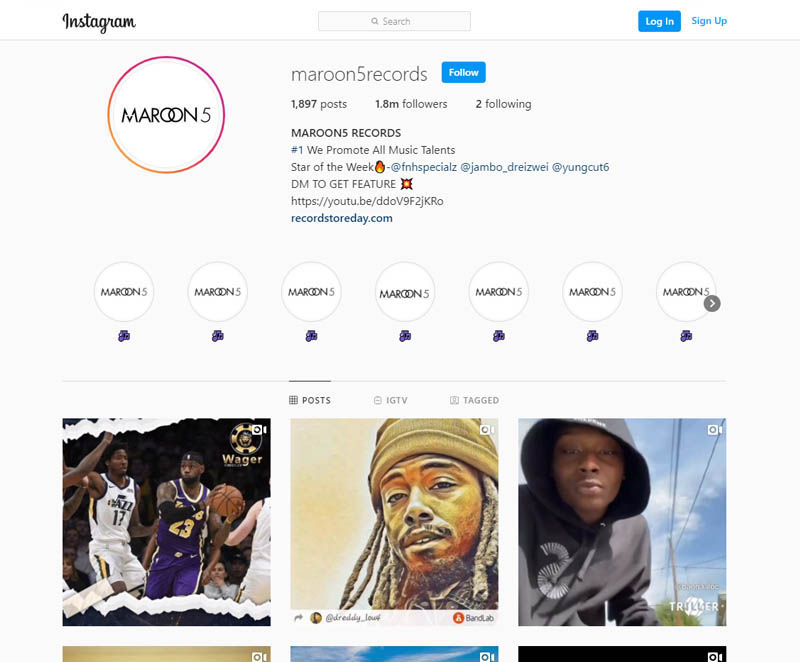
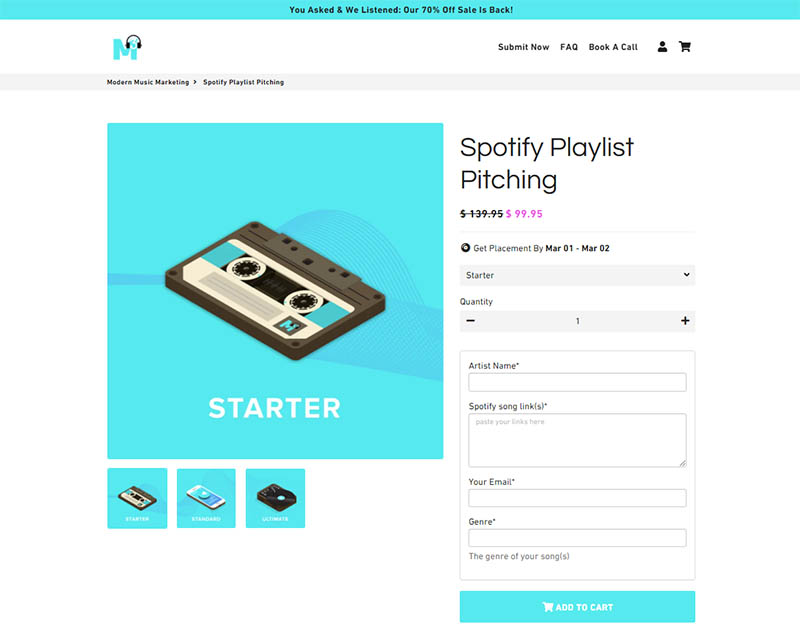
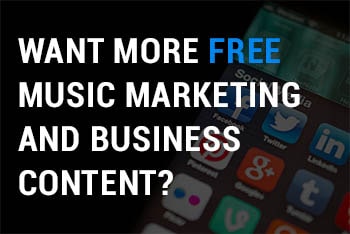
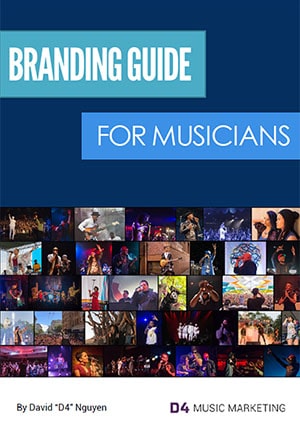
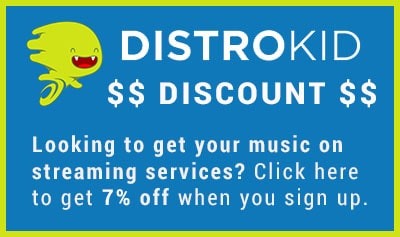
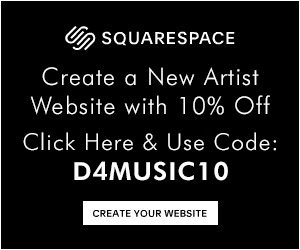

This was a great read. I gonna link this on my social media. Every upcoming artist should read this.
Thanks.
I needed to read this. Thank you, David.